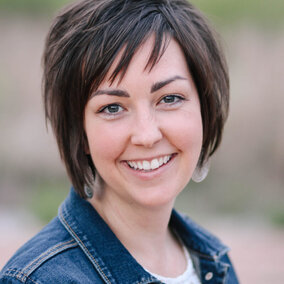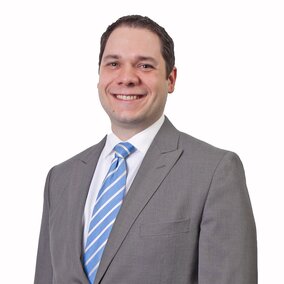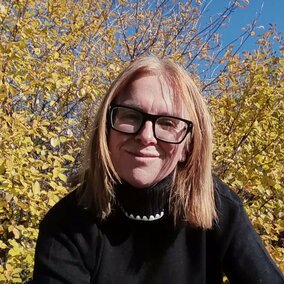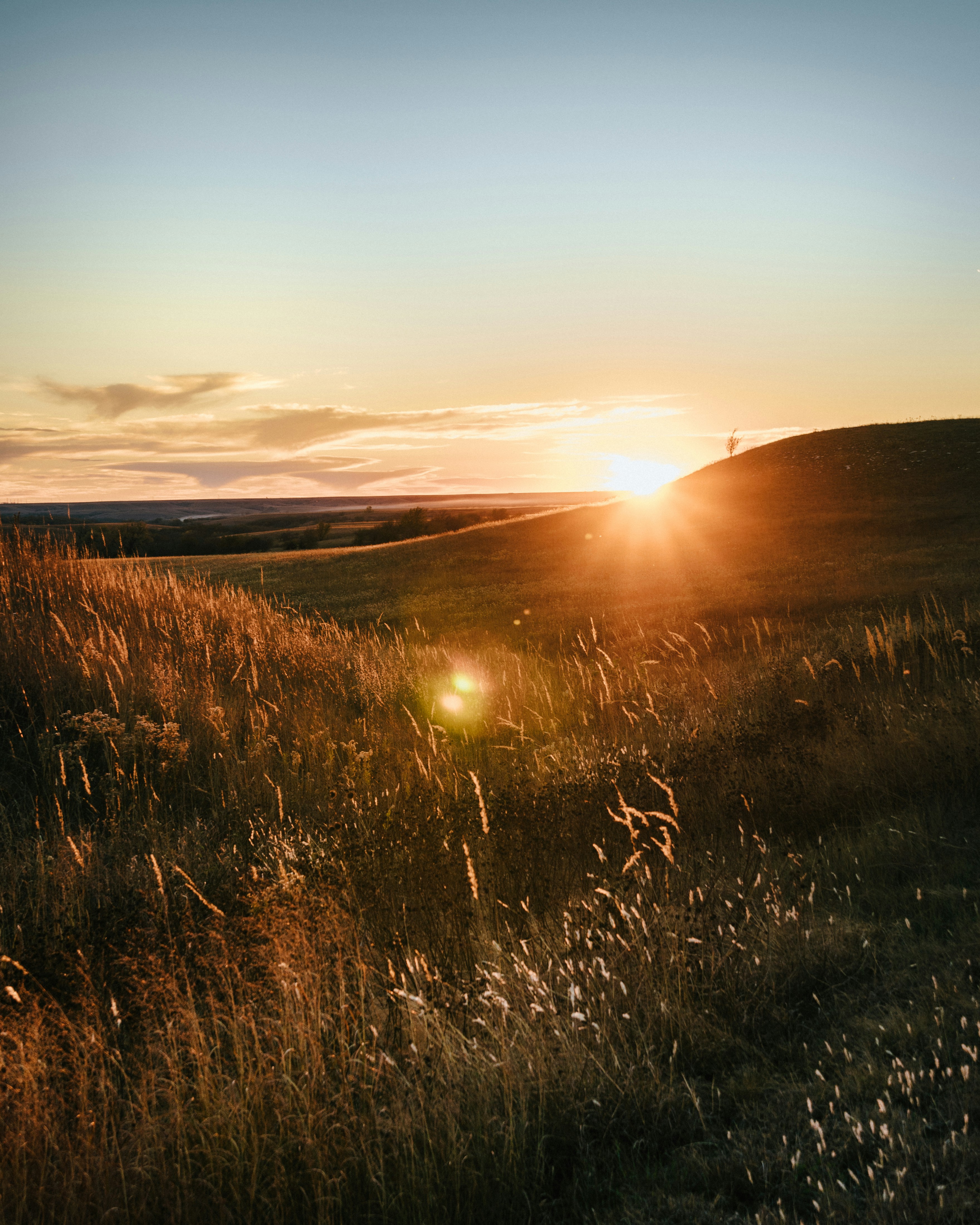March 31-April 2, 2026, Lincoln, NE
For five decades, the Center for Great Plains Studies has elevated the region as a place worthy of study, appreciation, and conservation. For our 50th anniversary, the annual Great Plains conference will celebrate our past and look to the next 50 years and beyond. This conference invites us to dream big about the future of people and land in our region. Join us for an interdisciplinary conference featuring keynotes, panels, workshops, and special events in Lincoln, Neb. As we look to explore the future of the region, keynotes and panels will focus on four interconnected themes: environmental futures, re-imagining the rural, Indigenous futures, and demographic change and migration.
Registration
NU students can use code GPstudent for a $25 conference ticket. Some free registrations are available for students or community members who may be in need. Send an email to cgps@unl.edu if you are interested.
Parking
March 31: Use garage parking downtown like the Que Place or Larson garages.
April 1-2: Conference parking is available in the lot north of Transformation Drive in Zone 9900 use the Passport Parking app to pay for parking.
Free access
Several portions of the conference are free and open to all without registration: Neil Linscheid's keynote, Ness Sándoval's keynote, the teach-in with several Otoe-Missouria tribal members, and the film at the Ross are all free and open to all.
Schedule
Tuesday, March 31, 6:30 p.m.: Shaylyn Romney Garrett at the Lied Center for Performing Arts, E.N. Thompson Forum on World Issues, separate free tickets required
Wednesday, April 1: Nebraska Innovation Campus Conference Center, 2021 Transformation Dr.
8 a.m.: Check in opens
9 a.m.: Ness Sándoval, keynote, open to all without registration thanks to support from the UNL Faculty Senate Convocations Committee
10:15-11:30 a.m.: Concurrent session 1
- 50 Years of Moving from Chicano to Latino at the University of Nebraska-Lincoln
- Kevin Aranda-Garcia, MASA member
- Rubi Hernandez Ochoa, Primary Programmer for MASA
- Marty Ramirez, Vice-Chair of LAS VOCES
- Michelle Suarez, former MASA president, former Lincoln City Council member
- Moderated by Thomas Sanchez, UNO
- From Parallel to Interwoven: Building Interdisciplinary Art and Science Collaborations
- Dana Fritz, Art (Photography), UNL
- Erin Haacker, Earth and Atmospheric Sciences, UNL
- Steve Rossi, Art (Sculpture), Saint Joseph's University
- Liz VanWormer, School of Natural Resources, UNL
- Co-Imagining Great Plains Futures through Games and Creativity
- Deborah Bathke, UNL State Climate Office
- Julia McMillan, UNL Sociology
- Kelsey Varisco, UNL Drought Mitigation Center
- Moderated by Tonya Haigh, UNL
- Cultivating What’s Next: Diverse Futures of Great Plains Agriculture
- Andrea Basche, Agronomy & Horticulture, UNL
- Angela Knuth, Knuth Farms
- Tim Rinne, Hawley Hamlet
- Moderated by Brooke McWherter, UNL
11:45 a.m.-1:30 p.m.: Danielle Boyer, lunch keynote
1:45-3 p.m.: Concurrent session 2
- The Future of Indigenous Entrepreneurship on the Great Plains
- Liz Lovejoy Brown (Omaha Tribe of Nebraska), Picotte Center
- Anthony Warrior (Absentee Shawnee/Mvskoke and Sicangu Lakota), Chef and NICC Instructor
- Tony Wood (Winnebago Tribe of Nebraska), HoChunk Community Capital
- Moderated by Cory DeRoin (Otoe-Missouria)
- Asian American Histories of the Heartland: Pasts and Presents in Conversation
- Donna Anderson, History, UNL (moderator)
- Emily Binder, PhD Student, UNL
- Kelsey Green, Anderson Public Library
- Nathan Tye, History, UNK
- Growing Farmers, Growing Community
- Sandro Lopes, NaTerra Farms
- Shahab Bashar Community Crops
- Moderated by Amy Gerdes, Family Service Lincoln
3:15-4:30 p.m.: Concurrent session 3
- The Future of Great Plains Regional Studies
- John Bauer, Geography, UNK
- Randy Bertolas, Geography, Wayne State College
- Becky Buller, School of Global Integrative Studies, UNL
- Christina Dando, Geography, UNO
- Moderated by Andrew Husa, UNL
- Joining Forces: Working Across Organizations to Benefit Nebraska’s Conservation Mentorship Network
- Nick Arneson, The Nature Conservancy
- Alexa Davis, Nebraska Dept. of Water, Energy, and the Environment
- Andrew Tonnies, Center for Rural Affairs
- Moderated by Kalee Olson, CFRA
- Indigenous Language Futures on the Great Plains
- Christina Goodson (Otoe-Missouria), Walking in the Footsteps of our Ancestors project
- Rebecca Liberty (Iowa Trie of Kansas and Nebraska), National Breath of Life
- Lewis "Blue" St.Cyr (Winnebago Tribe of Nebraska), HoChunk Renaissance language program
- Moderated by Gabriel Bruguier (Yankton Sioux), UNL
- Re-Imagining Rural Futures with the Rural Reconciliation Project
5:30-7 p.m.: Teach-In with the Otoe-Missouria tribal members at the Sheldon Museum of Art (open to all, no registration required)
Thursday, April 2: Nebraska Innovation Campus Conference Center
8 a.m.: Check in opens
9 a.m.: Neil Linscheid, keynote, this talk is open to all without registration thanks to support from the Office of Research and Innovation's Invited Scholar program
10:15-11:30 a.m.: Concurrent session 4
- Great Plains Energy Futures
- Beyond the Company Town: Reimagining Rural
- Governance and Politics in Nebraska and the Great Plains
11:45 a.m.-1:30 p.m.: Carol Graham, lunch keynote
1:45-3 p.m.: Concurrent session 5
- Creative Conservation for the Future
- Futures in Rural Health: Digital Apps + Multicultural Humans = Tomorrow's Route to Access
- Envisioning the Future of Indigenous Reconnections to Ancestral Lands: The Walking in the Footsteps Project
3:15-4:30 p.m.: Concurrent session 6
- Futuring Methods Workshop
- Stories from the Rural Past for a Resilient Great Plains Future
4:30-5:30 p.m.: Poster session and reception
7:30 p.m. at the Mary Riepma Ross Media Arts Center: Oyate Woyaka tells the story of the Lakota language history, loss and revitalization. The film touches on the deep history and spirituality of the language, the shocking history that caused Lakota to be on the verge of extinction, and the modern efforts being made to bring language back to life and the immense challenges this effort faces. Assistant Professor of History and Native American Studies Susana Geliga (Sicangu Lakota) will give comments afterward.
Keynotes

Danielle Boyer
From Bytes to Bright Futures: Meet the SkoBots
Join Anishinaabe (Sault Tribe) youth robotics inventor Danielle Boyer as she explores how culturally grounded technology can reshape education, empower communities, and revitalize languages. Growing up under the poverty line and witnessing firsthand the barriers to technical education, Danielle created the SkoBots, wearable, personal language-learning robots to teach Anishinaabemowin. Built with affordability, sustainability, and cultural relevance in mind, her robots cost less than $100 to produce and are distributed free to Indigenous youth. Danielle shares how she has reached over one million students globally, disbursed tens of thousands of robots, and built a movement rooted in community, grassroots innovation, and intergenerational knowledge.
Boyer focuses on how emerging technologies can be ethically used to drive Indigenous-led efforts for cultural preservation with an emphasis on language revitalization. In 2019, she founded The STEAM Connection, a youth-led charity that has reached over 1 million youth with free, accessible, and representative technical education. She is known for designing robots called SkoBots that speak her endangered language, Anishinaabemowin. She is a National Geographic Young Explorer, Echoing Green Fellow, two-time MIT Solve Fellow, Washington Post Next Changemaker, and Teen Vogue Indigenous Youth Changemaker. She has spoken at the White House twice and addressed the UNESCO Headquarters on Indigenous languages. Her life was featured in an MIT Solve documentary that earned a Webby, Sundance Brand Storytelling Award, Tribeca X Award, and SXSW Feature.

J.S. Onésimo (Ness) Sándoval
Demography as an Analytic Lens: Latino Population Growth and the Demographic Transformation of the Midwest
This talk explores how Latino population growth is reshaping the social, economic, and political landscape of the Midwest. By examining historical settlement patterns, contemporary demographic shifts, and projected trends, it highlights how Latindad has become an essential force driving regional transformation. Using demography as an analytic lens, the presentation connects statistical evidence with lived experience to reveal the far-reaching economic and political consequences of demographic change showing how Latino are redefining the future of Midwestern identity, governance, and opportunity.
Dr. Sándoval focuses his research on integrating demography with spatial data science. His work primarily explores the use of big data to analyze socio-economic and demographic trends in American cities. As a founding member of the Taylor Geospatial Institute, Sándoval plays a key role in advancing research in this field. He also writes a newspaper column, Rediscovering America Through Demography, where he writes about the demographic changes shaping the U.S. and their potential long-term impacts. Through his research and public outreach, Sándoval seeks to connect data and statistics with policy, helping communities better understand and adapt to the demographic shifts that affect their lives.
This talk is open to all without registration thanks to support from the UNL Faculty Senate Convocations Committee.

Shaylyn Romney Garrett
America's Upswing
Co-hosted with the E.N. Thompson Forum on World Issues at the Lied Center for Performing Arts. Separate (free) tickets required.
Social entrepreneur and coauthor of The Upswing: How America Came Together a Century Ago and How We Can Do It Again, Garrett has shared her opinions, writing, and research in numerous outlets including TIME Magazine, The New York Times, National Public Radio, BBC Radio, and the PBS Newshour. Her nonprofit work has been featured by the New York Times, FastCompany, LinkedIn, and Harvard Business Review. In 2011 she was honored with the Draper Richards Kaplan Social Entrepreneurship Fellowship, and was a finalist in the global Echoing Green Competition. She was twice awarded a membership to the Clinton Global Initiative, and has been a speaker at TEDx. Garrett holds a BA in Government from Harvard University.

Neil Linscheid
Community Usability: Designing Communities for People (And Not the Other Way Around)
What makes a community truly work for the people who live there? Across the Midwest and beyond, communities are moving past simply collecting data about newcomers, residents, and entrepreneurs. They're using that information to fundamentally redesign how their towns and cities function. This talk examines what's working, what's not, and what we can learn from communities that are getting it right. We'll look at communities that have reimagined how newcomers access essential services, how entrepreneurs navigate local systems, and how long-time residents connect with changing resources. We'll also examine what happens when communities stop designing for an idealized resident and start designing for the real, diverse people already there.
Linscheid is an Extension Professor and Extension State Specialist in Entrepreneurship at the University of Minnesota, where he works with communities to strengthen local economies by supporting entrepreneurs and building vibrant entrepreneurial ecosystems. He leads programs that equip communities with data-driven insights, collaborative frameworks, and strategies to create environments where entrepreneurs can flourish. His Extension work has spanned diverse areas including tourism development, internet adoption, entrepreneurship support, economic impact assessment, market analysis, regional economics, and community economic development initiatives. He holds a master's degree in Public Policy and a bachelor's degree in Political Science from the University of Minnesota.
This keynote is open to all without registration thanks to support by the UNL Office of Research and Innovation's Invited Scholar Grants program.

Carol Graham
Success in Conservation; Partnering with Producers and Private Landowners
Manitoba Habitat Conservancy (MHC) has been delivering conservation programs on private lands across southern Manitoba for 40 years. Enhancing habitat for species at risk and managing wetlands for waterfowl has required partnerships with producers, landowners, and industry. An emphasis on a collaborative approach has resulted in successful securement, enhancement, and mitigation of wildlife habitats in Manitoba. This community approach not only maintains ecological integrity and promotes biodiversity but also ensures ecosystem resilience and long-term ecological stability, beneficial for both producers and private landowners. Graham will speak about lessons learned and successes achieved over the years with programs that target native grassland management for wildlife and livestock production, upland enhancement for nesting habitats, and wetland retention and restoration for waterfowl.
Carol Graham is the Conservation Program Manager with Manitoba Habitat Conservancy. As a Habitat Conservation Specialist, she has been responsible for the enhancement of native grassland habitats in southwestern Manitoba for 15 years. Prior, she developed resource management plans for rangelands and forests. Carol has a Master of Science from the University of Manitoba and spends considerable time hiking, paddle boarding and exploring remote regions of the landscape.
Speakers and panels
Chris Anderson, Central City
Donna Anderson, Mellon Research Assistant Professor in US Law and Race, History, UNL
Kevin Aranda-Garcia, MASA
Nick Arneson, The Nature Conservancy
Andrea Basche, Associate Professor, Agronomy & Horticulture, UNL
Shahab Bashar, Community Crops
Deb Bathke, State Climatologist, UNL
John Bauer, Professor, Department of Geography, UNK
Randy Bertolas, Department of Geography, Wayne State College
Emily Binder, PhD Student, History, UNL
Robert Blair, Professor Emeritus, Public Administration, UNO
Liz Lovejoy Brown, Picotte Center
Christina Dando, Professor, Department of Geography, UNO
Alexa Davis, Nebraska Department of Water, Energy, and Environment
Cory DeRoin, Otoe-Missouria Tribe of Oklahoma
Cheryl Dunn, Lecturer, Herbarium Curator, Agronomy & Horticulture, UNL
Dana Fritz, Professor of Art, Photography, UNL
Susana Geliga, Assistant Professor of History and Native American Studies, UNO
Christina Goodson, Walking in the Footsteps of Our Ancestors project
Riley Gruntora, CEO, YMCA of the Prairie
Erin Haacker, Associate Professor, Earth and Atmospheric Sciences, UNL
Tonya Haigh, Rural Sociology Research Specialist, UNL
Johnnie Jae, multimedia journalist and artist
Shawn Kaskie, Rural Prosperity Nebraska, Extension Educator, UNL
El Kearns, UNMC Division of Health System Sciences
Angela Knuth, Knuth Farms
Jane Koger, Flint Hills rancher
Rebecca Liberty, Iowa Tribe of KS and NE and Archival Apprentice, National Breath of Life
Sandro Lopes, NaTerra Farms
Jamie Lopez, Assistant Professor, Community & Regional Planning, UNL
Kurt Mantonya, University of Nebraska Public Policy Center
Gisela Marfileño, Clinical Research Associate, UNMC
Russell McCulloh, Associate Vice Chancellor for Clinical Research, UNMC
Julia McQuillan, Professor, Sociology, UNL
Brooke McWherter, Department of Agronomy and Horticulture, UNL
Josh Moening, former Mayor of Norfolk
Kim Morrow, Chief Sustainability Officer, City of Lincoln
Viviana Gonzalez Navarro, Family and System Navigator, UNMC
Laura Nelson, Executive Director of the Nebraska Grazing Lands Coalition
Rubi Hernandez Ochoa, MASA
Veronica Pipestem, Native Foodways Restoration Alliance
Laura Priest, Center for Rural Affairs
Marty Ramirez, Vice-Chair of LAS VOCES
Athena Ramos, College of Public Health, UNMC
Tim Rinne, Hawley Hamlet
Steve Rossi, Associate Professor of Art, Sculpture, Saint Joseph's University
Thomas Sanchez, Sociology and Latino/Latin American Studies, UNO
Steve Smith, Communications for Citizen University, former Civic Nebraska
Lewis "Bleu" St. Cyr, HoChunk Renaissance language program
Will Stoutamire, Associate Professor, History, UNK
Michelle Suarez, former Lincoln City Council
Andrew Tonnies, Center for Rural Affairs
Nathan Tye, Assistant Professor, History, UNK
Heidi Uhing, The Good Life Institute
Liz VanWormer, Associate Professor, School of Natural Resources, UNL
Kelsey Varisco, Drought Social Science Associate, School of Natural Resources, UNL
LuAnn Wandsnider, Professor, School of Global Integrated Studies, UNL
Michelle Warren, Professor, Spanish, UNK
Anthony Warrior, chef, NICC Instructor
Della Warrior, MICA Group
Tony Wood, HoChunk Community Capital
Advertise in our conference program
Our audience consists of around 150-200 regional and local scholars, students, community leaders, and interested members of the public.
Ads should be full color, CMYK, no bleeds
Size options:
- Full page: 7.5x10” - $750
- Half page horizontal: 7.5x5” - $375
- Quarter page vertical: 3.75x5” - $200
Submit high-quality, pdf files to: cgps@unl.edu by Feb. 1
Submit payment via check to:
Center for Great Plains Studies
1155 Q Street #303
Lincoln, NE 68588-0124
Call for posters and creative displays
Poster session date: April 2, 2026 | Abstract submission is closed, we will let applicants know by Feb. 5.
We invite scholars, artists, students, and storytellers to participate in a creative poster session, designed to feel like a walk-through exhibition where art, science, and storytelling converge.
We welcome anyone from any discipline or background. Whether you are a researcher, student, artist, activist, Indigenous knowledge holder, or community member, we encourage you to share your perspectives and experiences. Our goal is to foster a space where diverse approaches come together and deepen our engagement with the future of the Great Plains. We invite you to move beyond conventional academic posters and transform your work into a more creative expression. This is a chance to present your research, ideas, or experiences in engaging and immersive ways, allowing attendees to interact with your work.
Support the Conference
Support the Center for Great Plains Studies' annual conference by becoming a sponsor.
Bronze level: $500
Logo on conference website, program, and other materials
Silver level: $1,000
Logo on conference website, program, and other materials, verbal thank you during conference welcome, two complimentary conference registrations
Gold level: $5,000
Logo on conference website, program, and other materials, verbal thank you during conference welcome, five complimentary conference registrations, complimentary conference program ad.
Sponsors and Supporters:
E.N. Thompson Forum on World Issues
UNL Department of Sociology
UNL Office of Research and Innovation
UNL School of Global Integrative Studies
UNL Johnny Carson Center for Emerging Media Arts
UNL Department of Biological Systems Engineering
UNL Faculty Senate Convocations Committee
UNL Dean of Engineering
UNL School of Natural Resources
The Mary Riepma Ross Media Arts Center
Humanities Nebraska
Editor World LLC
Presented in partnership with the Consulate General of Canada in Minneapolis.
